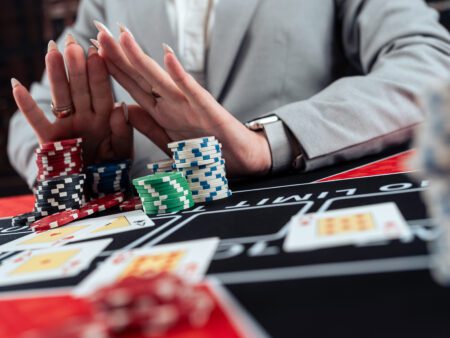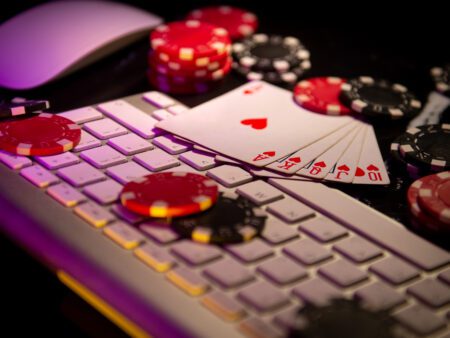Explore the intriguing psychology behind gambling, understanding why humans are irresistibly drawn to chance, risk, and the thrill of the unknown.
The Thrill of the Unknown: Why Humans are Drawn to Chance
Welcome to a world where the unknown is not feared, but rather, is pursued with a captivating mix of excitement and anticipation. Yes, we’re talking about gambling, a pastime that has lured humans across cultures and epochs. But why are we so drawn to chance, and what lies beneath this penchant for risk? Let’s explore the psychology of gambling to seek answers.
The Enthralling Uncertainty
The prospect of an uncertain outcome is central to gambling. It’s this uncertainty that fuels the adrenaline rush, keeps the heart pounding, and draws players back to the game, again and again. As humans, we’re wired to seek novelty and unpredictability. This is part of our evolutionary blueprint—our ancestors survived by exploring new territories and taking risks, and these instincts have stayed with us, manifesting in modern behaviors like gambling.
The Illusion of Control
Even within this realm of uncertainty, gamblers often believe they possess an element of control. This phenomenon, referred to as the ‘illusion of control’, was studied by psychologist Ellen Langer. Players may hold superstitions, follow rituals, or believe their skills impact the outcome, even in games of pure chance like roulette or slots. This illusion not only heightens the appeal of the game but also instills a false confidence that can fuel continued play.
The Gambler’s Fallacy
Another cognitive bias at play in gambling is the ‘gambler’s fallacy’. This is the belief that if an event occurs more frequently than normal during a certain period, it’s less likely to occur in the future, or vice versa. For instance, after a string of losses in a game of roulette, a player might believe that a win must be imminent. Despite the independence of each spin, the fallacy can significantly influence a player’s betting patterns.
Near-Miss and The Chase
In gambling parlance, a ‘near-miss’ refers to falling just short of a winning combination. Research shows that near-misses can be as stimulating as actual wins, invigorating the reward system in our brains and encouraging continued play. The tantalizing promise of a win around the corner often triggers the notorious ‘chase’ where players attempt to recover losses, getting more engrossed in the game.
Social and Cognitive Benefits
While the risks of gambling are well-documented, it’s also worth noting its potential benefits. The social aspect of gambling can be a source of enjoyment and camaraderie, while some games like poker and blackjack can challenge cognitive skills like strategic thinking and mental agility.
Conclusion
As we delve into the psychology of gambling, it becomes clear that our attraction to chance and the thrill of the unknown is deeply rooted in various cognitive, social, and evolutionary aspects. Understanding these can help us approach gambling with a healthier mindset, appreciating it as a form of entertainment rather than a money-making venture.
Remember, responsible gambling involves recognizing the risks, setting limits, and seeking help if gambling becomes problematic. Always gamble responsibly and remember that the ‘house’ has a mathematical advantage in the long run.
Stay tuned to the “Psychology of Gambling” category on OnlineGambling777.com for more insightful content on the fascinating interplay between the human mind and gambling. Stay informed, play responsibly, and enjoy the games you love.










